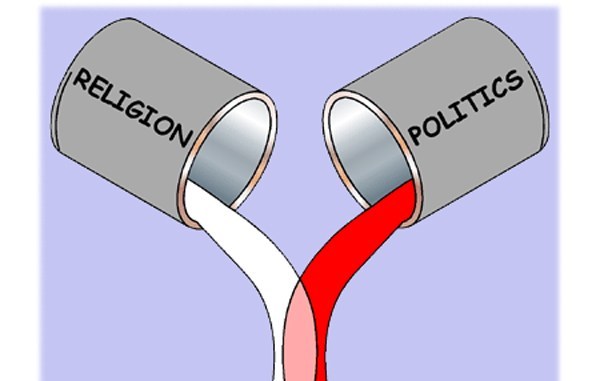The Central Role of Religious Figures in Maintaining Conduciveness After the 2024 Election
General elections (Pemilu) are the culmination of the democratic process in which citizens have the right to elect their leaders and representatives. However, after the election process ended, new challenges emerged, especially in maintaining stability and peace amidst post-election political dynamics
The central role of religious figures in maintaining conduciveness after the 2024 election is very important to maintain peace and social stability. They can play the role of mediators, promote inter-religious dialogue, and invite the public to maintain peace and respect the election results. In doing so, they can help prevent potential conflicts and create an atmosphere conducive to the post-election reconciliation process.
Elections often give rise to polarization and divisions among society, especially based on religious differences. In this context, religious leaders have the opportunity to promote interreligious dialogue and interfaith cooperation. Through dialogue activities, they can build better understanding between religious communities and encourage tolerance and respect for differences.
In this case, the Coordinating Minister for Political, Legal and Security Affairs (Menko Polhukam), Hadi Tjahjanto, said that the Indonesian Ulema Council (MUI) has a strong influence in maintaining social harmony, especially after the 2024 elections. Therefore, it is important that his party collaborates with MU together to maintain conditions. so that the political situation returns to calm.
Religious leaders have the opportunity to promote interreligious dialogue and interfaith cooperation in maintaining peace. Through dialogue activities, they can build better understanding between religious communities and encourage tolerance and respect for differences.
This is an opportunity to promote interfaith dialogue and interfaith cooperation in maintaining peace. Through dialogue activities, they can build better understanding between religious communities and encourage tolerance and respect for differences.
Religious leaders can also play an important role in educating the public about the importance of peace, tolerance, and respect for differences of opinion. Through lectures, sermons and other religious activities, they can encourage their followers to maintain calm and avoid provocations that could trigger conflict.
This was also conveyed by the Deputy General Chair of the MUI, KH Marsudi Syuhud, who said that the Indonesian Ulema Council is a large organization, in which there are 87 community organizations that are Islamic in nature so their influence on society is very strong in maintaining harmony in society.
Currently related to the post-election, legislative and presidential elections, the current conditions are still conducive and must be maintained, this is one of the MUI Kiai’s contribution efforts. In this case, the Coordinating Minister for Political, Legal and Security Affairs (Menko Polhukam), Hadi Thahjanto, said that his party hopes that a conducive atmosphere can be maintained until the inauguration of the elected president and vice president in 2024. With a peaceful situation, the world will see that the democratic party in Indonesia is running safely and smoothly, this is a nation’s pride.
It is important for religious leaders to educate their followers about the importance of respecting election results and the democratic process. By emphasizing values such as fairness, truth, and justice, they can help people accept election results peacefully and avoid radical or violent actions.
Post-election, a reconciliation process is often needed to reunite communities divided by political differences. Religious leaders can become agents of reconciliation by facilitating dialogue between disputing parties and encouraging inclusive and sustainable reconciliation efforts.
The central role of religious figures in maintaining conduciveness after the 2024 election is very important. By exercising their moral and spiritual authority, they can help build peace, resolve conflict, and promote the values of tolerance and reconciliation in society. Cooperation between government, religious leaders and civil society is key to creating an environment conducive to sustainable development and national progress.
Lumajang Police visited the residence of K.H Husni Zuhri, caretaker of the Miftahul Ulum Islamic Boarding School (Ponpes), Banyuputih Village, Jatiroto District, Lumajang Regency. Lumajang Police Chief, AKBP Mohammad Zainur Rofik, S.I.K said that this activity was carried out by religion to strengthen relationships with religious figures after the 2024 election voting.
Strengthening relationships with figures, both religious figures, community leaders and youth figures, is a positive thing in creating a security and order situation after the 2024 general election. Where, after the 2024 general election, the Lumajang Police are intensively implementing a Cooling System to keep security and social order conducive.
Religious leaders have a responsibility to educate their followers about the importance of peace, tolerance and respect for differences of opinion. Through lectures, sermons and other religious activities, they can encourage their followers to maintain calm, avoid provocation and foster an inclusive attitude in post-election society.
The central role of religious figures in maintaining conduciveness after the 2024 elections is very important. By exercising their moral and spiritual authority, they can help build peace, resolve conflict, and promote the values of tolerance and reconciliation in society. Cooperation between government, religious leaders and civil society is key to creating an environment conducive to sustainable development and national progress.
